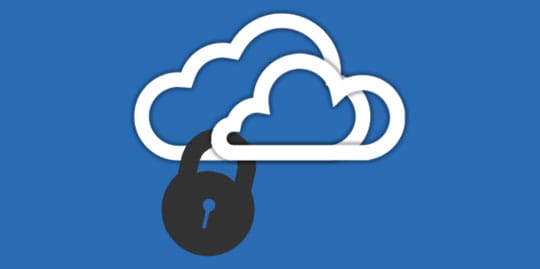If you have been wondering whether the cloud is truly safe, then it’s time to fully understand the bigger picture before jumping in and signing up to whichever platform appears to be the best. Looks can be deceiving and when it comes to protecting your personal data, you need to be completely satisfied with the level of security provided by the cloud, before you hit the upload button. One of the most common conversations that you will overhear at any business lunch once cloud computing is mentioned is the debate over how secure it actually is. Conflicting opinions with regards to on-site or off-site servers being more secure only add to the confusion or overwhelm. The future of computing is without a doubt in the cloud, so in light of this, here are 5 things you should understand about cloud security.
1. Public Cloud vs. Private Cloud

One of biggest debates amongst tech enthusiasts when it comes to discussing security in the cloud is the degree of security employed by both the private cloud and the public cloud. Whilst it is certainly true that the initial setup used by the private cloud may give you greater control over the data you upload, it has not been factually proven whether it is more secure, or less secure than the public cloud. The essence of true security focuses more on your cloud strategy as a whole and how you are making use of the technology.
2. Human Threats on Cloud Security

Ultimately, for as long as companies keep employing humans to manage different aspects of the organization, security threats will always be present. As soon as there is a data breach people are quick to blame technology, namely the cloud storage facility they are using. Many people turn a blind eye to the fact that the risk of human hacking (either by employees or external third parties) is much greater. Identity theft is prevalent in society, with recent data revealing that company´s workers were responsible for over 50% of security breaches during the previous year. This comes as no surprise when you consider just how many people work remotely, accessing sensitive company documents and information from their personal mobile devices or laptops.
3. Lack of Research

In a recent article, TechRepublic outlined the importance of doing your homework before storing big data in the cloud. You wouldn´t hand over your wallet and credit card information to a complete stranger in real life, so why are so many people not bothering to do sufficient research before storing data in the cloud? Reading the fine print of any service is always a boring task, which nobody enjoys doing- but the fact of the matter is, it is essential to do the appropriate research before enlisting the services of any cloud provider.
4. Levels of Encryption

The varying levels of encryption employed by each cloud storage provider are also an important consideration to take into account during the course of a cloud storage debate. Making an incorrect assumption about the encryption grade of the service you are using can be a costly mistake. All of the reputable providers as outlined by Cloud Storage101 will use some form of encryption, but not all of them use end-to-end military grade encryption. An all singing, all dancing fully encrypted cloud provider will require a slightly higher financial investment, but that is a small price to pay compared to what you could end up spending if your data was to fall into the wrong hands.
5. Read the Small Print

Before you sign up to cloud storage provider, always read the small print. If you want to minimize the risk of your data security being compromised, then make sure to pay close attention to the security clauses in the fine print, including people who are able to access the data you have chosen to upload and when, if the cloud storage provider you are thinking of signing up to outsources data storage or if they have their own guarded servers and also how your stored data is erased and how often. You should consider how privacy is handled, for example, the specific data that they collect about your company, and the steps that your chosen provider will follow to keep data safe and private. If possible, it is worth investigating how they will use your data and the period of time that they will store it. Operational fine print outline how often backups are performed and system downtime are equally important.
Conclusion:

There are of course a countless number of potential security issues that could be a threat and whilst technology is always evolving, nothing in life is entirely risk-free. If you take the time to thoroughly inform yourself by reading up on cloud storage and security on trusted websites like ZDNet who are always reporting the latest cloud computing and technology news hot off the press.





